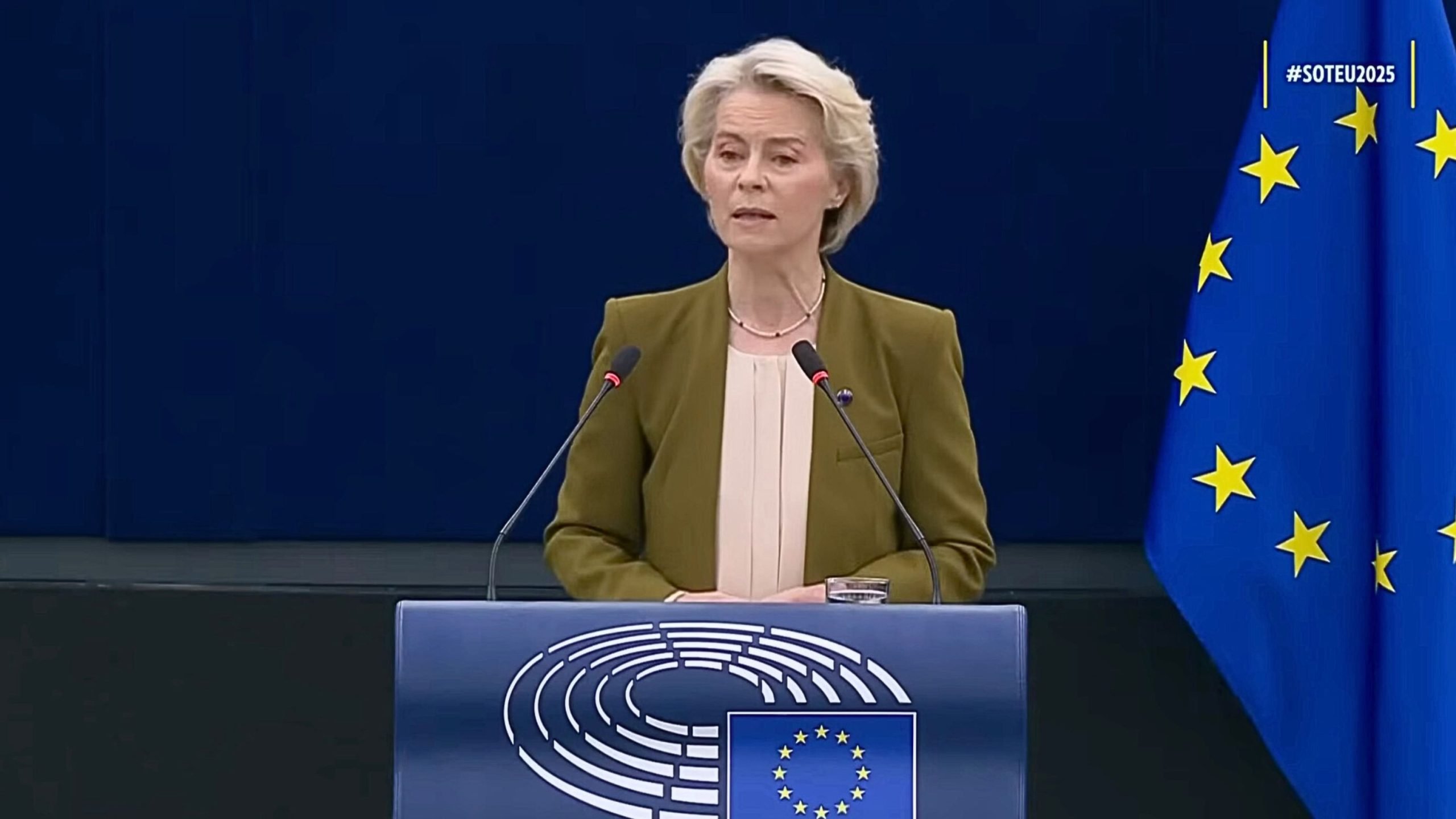European Commission President Ursula von der Leyen used her 2025 State of the Union speech to unveil a raft of new regulatory measures that introduce new challenges for digital rights and freedom of expression across the continent and the world.
Framed as measures for public health, democracy, and child protection, the Commission is pushing the EU deeper into institutionalized censorship and online regulation.
Addressing the European Parliament, von der Leyen declared she is “appalled by the disinformation that threatens global progress on everything from measles to polio.”
Citing fears of a global health crisis, she introduced a “Global Health Resilience Initiative,” which she said the EU would lead.
This initiative is expected to tie online speech more tightly to global health narratives, laying the groundwork for broader suppression of dissenting views under the label of medical misinformation.
Another centerpiece of her address was the so-called “European Democracy Shield,” a program that we’ve covered in great detail, intended to streamline and centralize the Commission’s censorship machinery under the banner of fighting “foreign information manipulation and interference.”
Framing the internet as a battlefield, she said: “Our democracy is under attack. The rise in information manipulation and disinformation is dividing our societies.”
Expanding on that framework, she announced the creation of a new institution, the European Centre for Democratic Resilience.
According to von der Leyen, this center will allow the EU to scale up its ability “to monitor and detect information manipulation and disinformation.”
But the agenda didn’t stop there. She introduced the Media Resilience Program, which she claimed would support “independent journalism and media literacy.”
In practice, however, such efforts often result in government-approved messaging being amplified, while dissenting outlets don’t get funded.
Von der Leyen pointed to declining local journalism in rural communities and claimed: “This has created many news deserts where disinformation thrives…This is why we will launch a new Media Resilience Program – it will support independent journalism and media literacy.”
Despite the existing Digital Services Act already mandating age verification (and therefore digital ID) online, von der Leyen floated a new, even more restrictive direction for internet access among young people.
Drawing inspiration from Australia’s controversial 2024 Online Safety Amendment, which includes a social media ban for those under 16, she suggested the EU could move toward similar rules.
“Just as in my days, we as a society taught our children that they could not smoke, drink, and watch adult content until a certain age. I believe it is time we consider doing the same for social media,” she said.
The entire speech signals a continued consolidation of control over digital spaces by EU institutions, with a heavy focus on regulating speech and tightening access restrictions.










